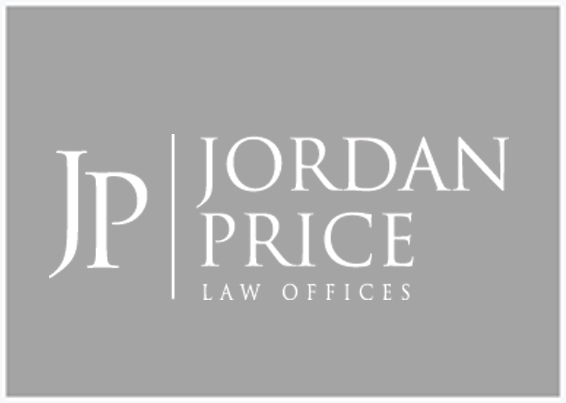As the COVID-19 vaccine becomes more widely available, many private employers are wondering – can I require my employees to be vaccinated? The short answer is yes, at least in most cases. Private employers can require employees to receive a vaccination, unless the employee has a disability or sincerely held religious belief that would preclude vaccination. However, careful thought needs to be given to how vaccines might be administered to avoid complications under the Americans with Disabilities Act (ADA).
The Equal Employment Opportunity Commission (EEOC) is the federal agency that enforces anti-discrimination laws like the ADA and other laws that prohibit discrimination in the workplace. The EEOC has recently updated guidance for employers grappling with issues related to COVID19, including vaccination.
Employers have long known that except in narrow circumstances, the ADA prohibits them from engaging in disability-related inquires or medical examinations of employees. Some may question whether the administration of a vaccine violates this prohibition. The EEOC has clarified that the administration by an employer of an FDA-approved COVID-19 vaccine is not a prohibited medical examination or inquiry. The reason is that the mere physical administration of the vaccine does not constitute an inquiry into an employee’s current health status. But there is a wrinkle. Vaccines are not administered in a vacuum. The CDC recommends that health care providers ask certain questions before they vaccinate someone to ensure there are no problematic health conditions at play. Those pre-screening questions, if asked by or on behalf of an employer, could constitute a prohibited medical inquiry since the questions are likely to elicit information about a disability.
So, if an employer wants to require vaccinations, what are the options?
Keep in mind that there is a big difference between an employer who is administering the vaccine, either directly or through a contracted third party, and an employer who is simply requiring employees to get a vaccine. An employer that wants to provide direct administration of the vaccine either through its own personnel or a third-party contractor, must show that the screening inquiries are “job-related and consistent with business necessity” under the ADA. That means, based on objective evidence, that the employee is a “direct threat” to the health or safety of themselves or others. There are various factors that go into that determination. The safer approach from an ADA liability standpoint is to require that the employee get a vaccination through an independent third party, like a pharmacy or private healthcare provider. The pharmacy or healthcare provider would be asking the pre-screening questions in that situation and not the employer. The employee can then be required to simply show proof of vaccination to the employer.
What if someone objects to the vaccine?
It depends on the bases of the objection. If the employee simply does not want to be vaccinated because they believe the vaccine is unsafe or don’t like needles, the employer can take adverse employment action. However, if the employee reports that they have a disability or sincerely held religious belief that precludes vaccination, the employer must engage in further discussion. An employer is required to try to accommodate the disability or religious belief, unless having an unvaccinated employee would pose a “direct threat” to the health or safety of others, and that threat cannot be eliminated or reduced by a reasonable accommodation.
Whether or not an unvaccinated employee poses a direct threat of harm will be looked at on a case-by-case basis, with a focus on four distinct factors: 1) the duration of the risk, 2) the nature and severity of the potential harm, 3) the likelihood that the potential harm will occur, and 4) the imminence of the potential harm. There is no blanket policy that can be applied. For example, an office space where workers have individual offices is very different from an assembly line in a plant or the back of a restaurant.
If an employer determines that an unvaccinated individual poses a direct threat, the question becomes – is there a way to eliminate or reduce the risk? For example, if the individual does not work closely with others or mostly works outside, the risk may be managed just by requiring a mask or shifting work schedules. Perhaps the individual’s job duties are suitable for remote work, which is another type of accommodation. The point is that thought must be given to whether there is a reasonable accommodation that is appropriate. Adverse employment action can only be taken after a determination that (1) an unvaccinated employee poses a direct threat and (2) there is no action that could be taken to reduce the risk of transmission to an acceptable level.
These can be complex inquiries, and employers are encouraged to contact their legal counsel before taking any adverse employment action, especially in situations where a vaccination is refused based on a disability or sincerely held religious belief.
This article has focused on whether an employer can require COVID-19 vaccinations, not whether they should. Employers need to carefully consider how a required vaccination policy might affect employee morale. There is nothing that prohibits an employer from offering the vaccine on a truly voluntary basis or for incentivizing employees to get vaccinated. Those types of approaches may help overall immunity in the workplace, while avoiding potential legal and other issues arising from a required vaccination.
If you have further questions regarding these matters, please contact Lori P. Jones.
DISCLAIMER: Please note that the situation surrounding COVID-19 is evolving quickly, sometimes daily, and this article is not being updated to account for such changes. Information in this article is meant for general education and is not designed to be substituted for and does not constitute legal advice. This information is not intended to create, and receipt of it does not constitute, an attorney-client relationship.
